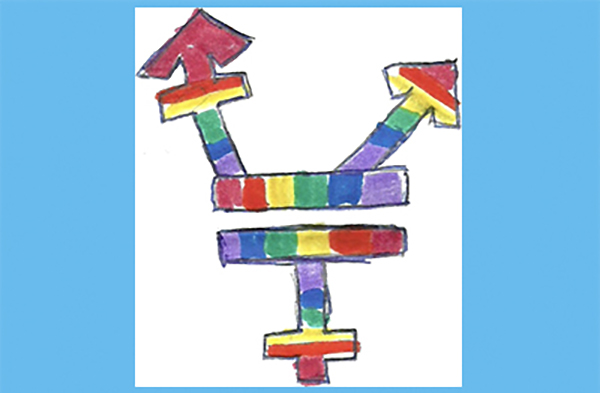Trans Awareness Week raises visibility to help overcome challenges that many transgender and nonbinary people face
Miami University experts from the College of Education, Health and Society speak about creating positive environments that can provide affirmation, support, and safety

Trans Awareness Week raises visibility to help overcome challenges that many transgender and nonbinary people face
Organizations and individuals around the globe will participate in Transgender Awareness Week this week, but many cultural and political barriers, social stigmas, and emotional challenges still exist for trans, gender-expansive, and nonbinary youth and adults. Research shows that overcoming various health disparities, social exclusion, discrimination, and violence is critical.
Katherine Kuvalanka, professor of family science and social work, is an expert on families with lesbian, gay, bisexual, transgender, and queer (LGBTQ+) family members. She is the principal investigator of the Trans*Kids Project, a longitudinal study of 50 families with transgender and gender-diverse children.
“Transgender and nonbinary gender identities and expressions are natural aspects of human diversity. Transgender Awareness Week provides an opportunity for family and community members to consider ways to build more accepting and inclusive environments for the transgender and nonbinary youth and adults in their lives.”
“Mental health risks are reduced when parents and caregivers support transgender children in living according to their true gender identities, which can include changing names, pronouns, hairstyle, and clothing. Specifically, when trans youth, who have chosen a name other than the name they were given at birth, are allowed to use their chosen name in various contexts—such as at home or school—the likelihood of exhibiting depressive symptoms, suicidal ideation, and suicidal behavior decreases.”
“Research has also revealed the unique positive influence that transgender and nonbinary youth can have on their families. Just by being themselves, they give their family members an opportunity to grow and to broaden their understandings of gender, which can strengthen family ties.”
Darren Cosgrove, assistant professor of family science and social work, uses arts-based methodologies and participatory action research to work with transgender and nonbinary communities to explore identity development, affirmation, and social stigma.
“In a world that is predominantly cisnormative, it is easy for trans and nonbinary experiences and identities to be erased. Too often the diversity and range of trans and nonbinary people’s identities is overlooked. Transgender Awareness Week can help celebrate trans and nonbinary people, diversity in gender identity and expression, and the ways in which gender expansiveness and affirmation can be a tool for self and social liberation.”
“My research focuses on exploring whether or not mental health service providers who offer care to LGBTQ people are affirming of nonbinary people’s genders. Although someone may be knowledgeable and skilled at offering care to cisgender queer people and trans men and women, they may not be all that affirming of nonbinary people. As such, it is critical that we all increase our understanding of how diverse gender identities can be.”
Allen Ratliff, assistant professor of family science and social work, studies violence against transgender and non-binary young people and young people experiencing homelessness.
“Legislation and policies that ban gender-affirming healthcare, participation in sports, or access to bathrooms are directly denying resources to transgender and nonbinary children. These policies are harmful and may lead to long-term mental and physical health issues.”
“Policies targeting transgender and nonbinary children also lead to negative and stressful social environments, contributing to bullying and discrimination against transgender and nonbinary youth. These policy attacks will harm generations of young people, continuing the violence and discrimination that we see experienced by transgender and nonbinary adults.”
“Transgender and nonbinary people are consistently targeted for discrimination, violence, and social exclusion, fundamentally violating their inalienable rights to live in safety and freedom. Recognizing Transgender Awareness Week and celebrating the important contributions of transgender and nonbinary people provides opportunities for broader cultural coalitions of inclusion, dignity, and respect for all people within our society.”
